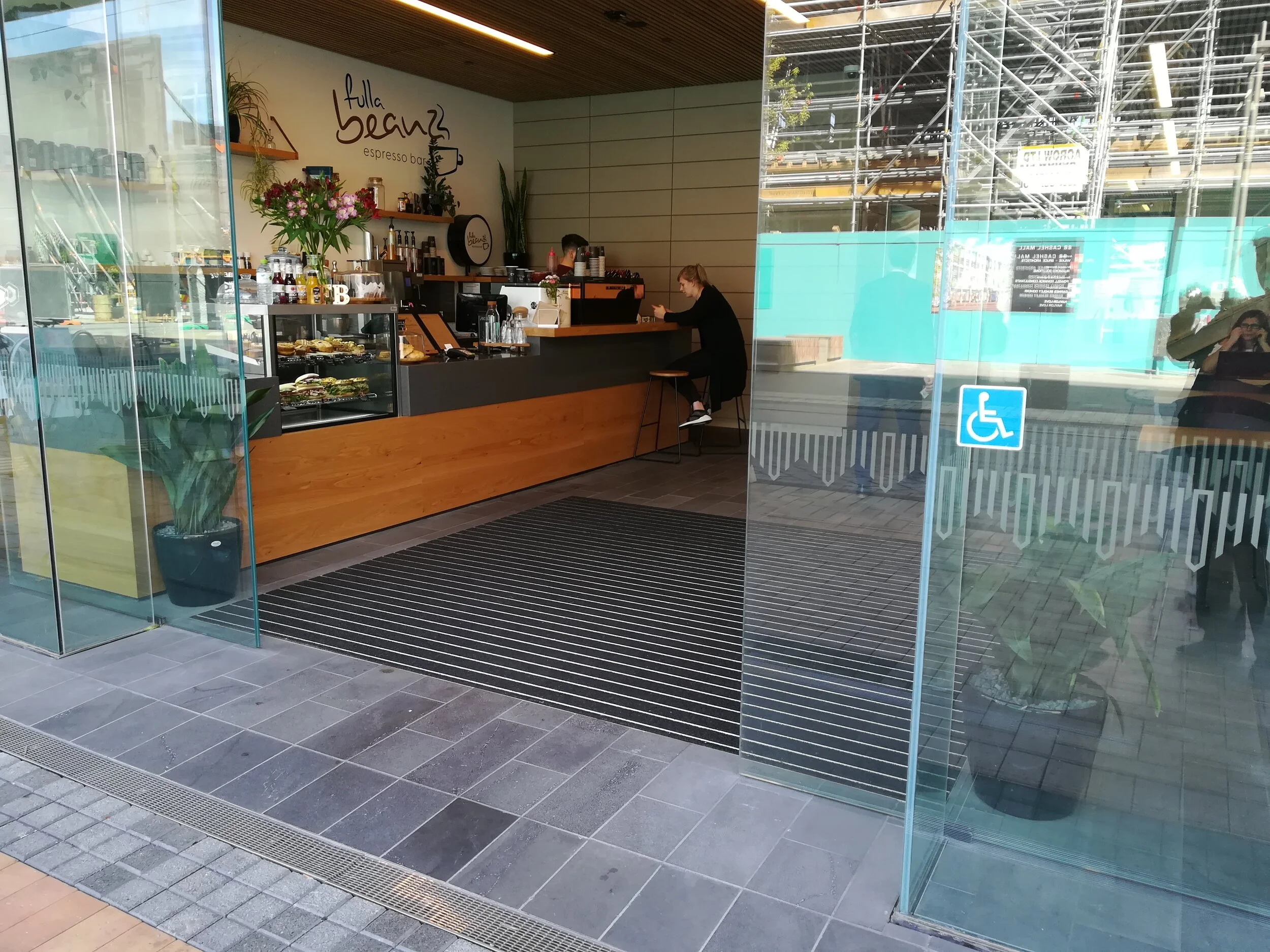Universal design and viruses
Listen to the audio version by clicking the play button above.
At the time of writing, around twenty per cent of the world’s population is in lockdown. Many more are living with social distancing and masking requirements. Life is not normal for a lot of us.
It seems impossible to have such a widespread human experience without it changing us permanently in some ways. Perhaps it’s naïve, but I’d like to believe that positive changes will linger after we emerge from this global event.
I have been to the supermarket once since the New Zealand lockdown was announced. Right now, I greatly appreciate that I did not have to touch the doors because they opened automatically. The most useful design features are ones like this that we don’t even notice. Automatic doors are so common that I’d forgotten how convenient they make everyday life.
According to Wikipedia, modern automatic opening doors were invented in 1931 to make it easier waiters in the United States to carry trays of food and drink to restaurant dining rooms.
Automatic doors with a floor mat actuator – something I remember from my childhood – were introduced commercially in 1960 to overcome the difficulty of using hinged doors in a windy Texas city.
Motion-activated doors came onto the scene in the 1970s, apparently to reduce power consumption during the energy crises of that era. It turned out they had the useful side-effect of providing better access for people with disabilities. And now, in the age of COVID, this universal design feature has provided us with an unanticipated health benefit!
The automatic door is just one example of an element that works well for everyone who uses it, regardless of age, size, ability or disability. It is not designed to cater for a particular group, like wheelchair uses, but instead offers the same experience to everyone equally. That is what makes it universal.
The more of these kinds of solutions we can weave into our built environment, the more inclusive and equitable it will become. Perhaps new and innovative features will arise as a result of our global experience during this pandemic. And they may surprise us with benefits we never thought of, like not having to touch those supermarket doors.


